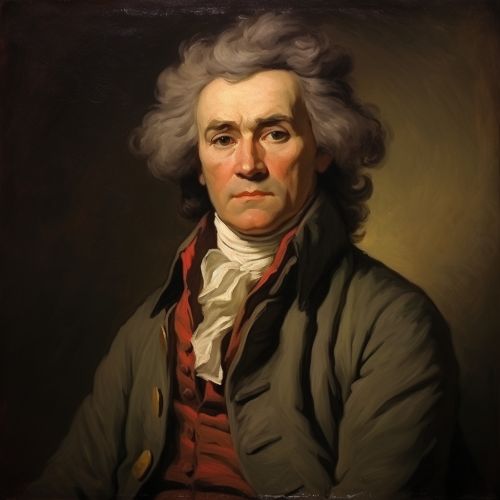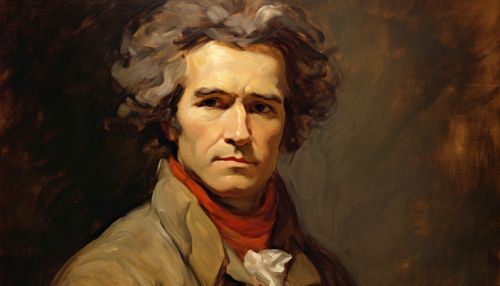Jean-Jacques Rousseau
Early Life
Jean-Jacques Rousseau was born on June 28, 1712, in Geneva, a city-state then known for its rigid orderliness and its proud independence. His mother, Suzanne Bernard Rousseau, died just days after his birth from complications. His father, Isaac Rousseau, a watchmaker, raised him until he was ten before abandoning him to the care of an uncle.
Education and Early Career
Rousseau's education was irregular. He spent several years as an apprentice to an engraver before running away at the age of 16. He then met Françoise-Louise de Warens, a wealthy woman who took him under her wing. With her support, Rousseau was able to study music, mathematics, and philosophy, eventually becoming a music teacher and a tutor.
Philosophical Works
Rousseau's first major philosophical work, "Discourse on the Arts and Sciences" (1750), argued that the progress of the arts and sciences had not been beneficial to mankind. This controversial thesis won him a prize from the Academy of Dijon and marked the beginning of his philosophical career.
In "Discourse on the Origin and Basis of Inequality Among Men" (1755), Rousseau traced the social implications of the human ability to think abstractly. He argued that this ability leads to comparisons, which in turn lead to feelings of pride or inferiority. These feelings, he believed, were the root of social inequality.
Rousseau's most famous work, "The Social Contract" (1762), presents his theory of political legitimacy. He argued that the only legitimate political authority is the "general will" of the people. This concept has been influential in the development of democracy.
Personal Life and Death
Rousseau had a tumultuous personal life. He had a long-term relationship with Thérèse Levasseur, a chambermaid, with whom he had five children, all of whom were given up for adoption. He also had numerous quarrels with other intellectuals, including Voltaire and David Hume.
Rousseau died on July 2, 1778, in Ermenonville, France. His remains were later moved to the Panthéon in Paris.
Legacy
Rousseau's ideas have had a profound impact on political philosophy and political theory. His concept of the "general will" has been particularly influential, shaping the development of democratic theory and practice. His writings have also influenced education, literature, and the arts.


